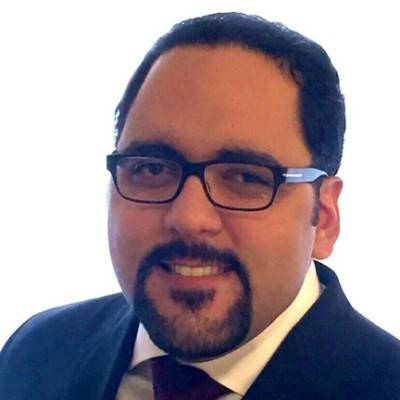And How to Avoid Them
I recently joined Michelle Mudge Riley on her free webinar to talk about mistakes that will derail a job search. We listed the major ones that we have witnessed. And we took questions from the audience.
I have narrowed down my list to EIGHT big mistakes that will derail a job search. I’ll go through each one, and provide examples where I can. I’ve seen all of these and made a few of these mistakes myself.
The Mistakes That Will Derail a Job Search.
#1 – Tunnel vision and not keeping an open mind
- Regarding possible jobs
- About how you will find a job
- About your capabilities and transferable skills
Our Sponsor
We're proud to have the University of Tennessee Physician Executive MBA Program, offered by the Haslam College of Business, as the sponsor of this podcast.
The UT PEMBA is the longest-running, and most highly respected physician-only MBA in the country. It has over 700 graduates. And, the program only takes one year to complete.
By joining the UT Physician Executive MBA, you will develop the business and management skills you need to find a career that you really love. To find out more, contact Dr. Kate Atchley’s office at (865) 974-6526 or go to nonclinicalphysicians.com/physicianmba.
#2 – Being intimidated by a job description
- Many of us have landed jobs even though we don’t meet the written “requirements”
- Many qualifications are “nice to have” not “must-haves”
#3 – Preparing a CV rather than a resume
- Might be OK for an academic position
- Understand the difference
- Focus on the summary with keywords
- Emphasize accomplishments with measurable outcomes
#4 – Using the same cover letter and resume for different jobs or different industries
- Example: “leadership role in the health insurance or pharma industry” is not appropriate
- Each employer has its own needs, even for the “same” position
- Customize resume and cover letter with unique experiences and skills for each potential employer
#5 – Depending too much on online applications and not leveraging networks
- One of my guests found herself suddenly anxious to leave her clinical job; she reached out to former classmates and one of them informed her of a job as a life insurance medical director, she applied and landed the job, and loves it 10 years later
- Networking is a foreign concept to physicians and many of us are competitive introverts
- Networking is reconnecting with old medical school classmates and former co-residents directly, or with Doximity or LinkedIn
#6 – Not learning the jargon of the field we’re pursuing
- hospital management, pharma positions, and every nonclinical job uses its own jargon
- use in the cover letter, resume, and interviews
#7 – Not taking the interview seriously
- Failure to bring copies of your resume, dress properly, arrive early, listen more than you talk, or ask enough questions
#8 – Not preparing sufficiently
- Not understanding the job posting
- Not doing enough research on the position or on the organization
- Failing to check out financial reports, stock reports, Guidestar, Google, rating agencies
There are important issues at each step. But don’t get overwhelmed.
BONUS Mistakes to AVOID:
#1 – Failure to prepare a COMPLETE LinkedIn Profile is another mistake that will derail a job search.
#2 – After the interview but before accepting the offer; do your own personal investigation into the employer to see if it will be a good fit, with
- Other employees
- Customers
- Physicians
- Check for physician leadership if appropriate
- Most of us don’t make or accept a marriage proposal after one or two dates – those that do are often disappointed – the same thing applies to most jobs – you’ll be married to this new employer potentially for decades – before accepting the offer do even MORE research – walk the halls if you can – speak to nurses if it is a hospital position – talk to future coworkers, etc.
Summary
Now go get that new job! And remember that we all make mistakes, so violating one or two of the above suggestions is not the end of the world. But by learning as you go and correcting the above errors, you will optimize your chances of landing that new job.
Before I go, I have a couple of books to recommend. These are books written by previous guests.
First – Andrew Wilner just released the audiobook version of his book The Locum Life. And he narrates it himself. Let’s show our support by going to andrewwilner.com and clicking the link that says Audible Book Now Available. I think it’s a cranberry-colored link. It is the definitive book on how to take on locums work and AVOID all of the potential landmines along the way.
Next – Mandy Armitage just released her new book. We will be discussing the book and her publishing journey next week. But, I believe you can get the book now if you are thinking about a career in medical writing. It is called From Clinical Practice to Medical Writing: A Career Transition Guide. And you can get a copy by going to ArmitageMedicalWriting.com and click the BOOK tab at the top of her home page. [Neither of these is affiliate links.]
Links for Today's Episode:
- Your Resume Is the Passport to That Desirable Job – 157
- How to Be a Remarkable Resume Writer – 136
- Follow These Steps to Create an Awesome LinkedIn Profile – 009
- Top Reasons to Use LinkedIn – 008
Download This Episode:
Right Click Here and “Save As” to download this podcast episode to your computer.
Podcast Editing & Production Services are provided by Oscar Hamilton
Disclaimers:
Many of the links that I refer you to, and that you’ll find in the show notes, are affiliate links. That means that I receive a payment from the seller if you purchase the affiliate item using my link. Doing so has no effect on the price you are charged. And I only promote products and services that I believe are of high quality and will be useful to you, that I have personally used or am very familiar with.
The opinions expressed here are mine and my guest’s. While the information provided on the podcast is true and accurate to the best of my knowledge, there is no express or implied guarantee that using the methods discussed here will lead to success in your career, life, or business.
The information presented on this blog and related podcast is for entertainment and/or informational purposes only. I do not provide medical, legal, tax, or emotional advice. If you take action on the information provided on the blog or podcast, it is at your own risk. Always consult an attorney, accountant, career counselor, or other professional before making any major decisions about your career.








Leave A Comment
You must be logged in to post a comment.